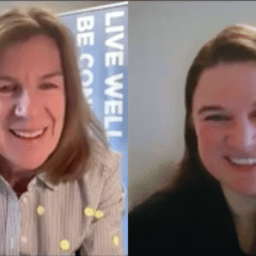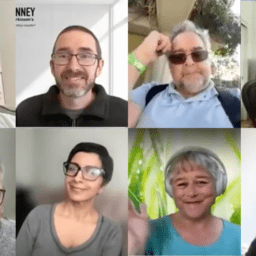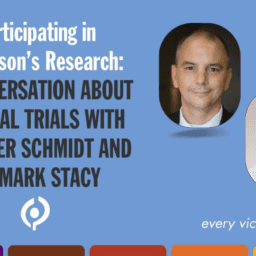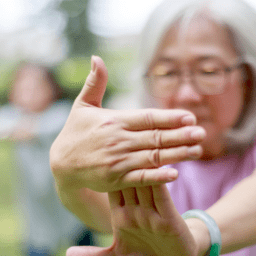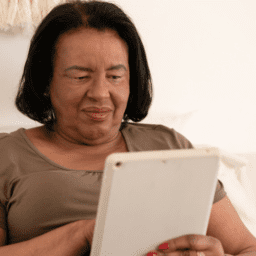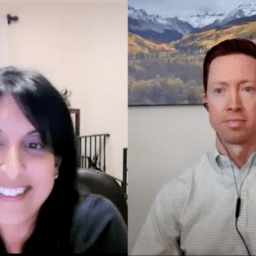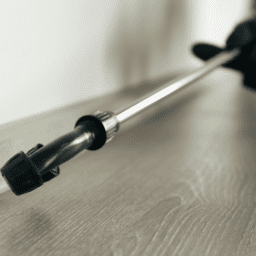Recent research confirms what many people with Parkinson’s have known for years: Access to neurologists for Parkinson’s care is limited, and the problem worsens when it comes to accessing care from a movement disorder specialist (MDS).
The problem may be more dire than you’d expect: In 2019, 40% of people living with Parkinson’s in the United States did not see a neurologist over the course of the year.
Care access is a global problem
Based on the World Health Organization (WHO) Atlas for Neurological Disorders, the authors of a 2022 study share that resources for neurological conditions, including Parkinson’s, are “grossly insufficient, with large inequalities existing across regions, income levels, and countries.”
Specifically, the study’s authors observe that in lower-income countries there are only 0.1 neurological health providers per 100,000 people and that the global median is only three neurological care providers per 100,000 people. A separate 2022 study reported that 572 out of every 100,000 people worldwide live with Parkinson’s.
Based on these global averages, if each neurological care provider treated the same number of people with Parkinson’s, they would each treat 190 people with Parkinson’s–in addition to the care they’d provide for all other neurological healthcare needs.
To further consider the scope of the problem, in 2020, there was only one neurologist for every million people in India. Access to trained experts in Parkinson’s is even more limited: Although not every trained Parkinson’s expert appears in the database, a search of the International Parkinson and Movement Disorder Society provider database finds only 17 MDS physicians in India and only 12 MDS physicians on the entire continent of Africa.
medication access is also lacking
Another difficulty in accessing Parkinson’s care is that, according to the WHO’s Atlas for Neurological Disorders, only 37 out of 110 countries had regular access to levodopa in primary care settings. A continent-wide study in Africa finds that Parkinson’s-specific therapies and services “are largely unavailable and unaffordable in most African countries.”
Parkinson’s Care Access in the United States
While the scope and scale of the difficulties is different, limited access to neurological care is a significant problem in the United States as well, despite that the overall number of neurologists in the US is far greater than in many other countries. In fact, a study published in July 2023 reports that in 2019, 29% of people with Parkinson’s in the United States saw only a primary care provider for treatment, and 11% of people with Parkinson’s saw neither a neurologist nor a primary care provider for treatment.
Other key findings from the study of Parkinson’s care access in the United States include the following:
- Only 9% of people living with Parkinson’s saw an MDS.
- Just 20% of people living with Parkinson’s saw a physical therapist.
- Only 2% of people living with Parkinson’s saw a psychologist and only 4% saw a psychiatrist, despite that 53% of people living with Parkinson’s have a diagnosis of depression or anxiety.
Importantly, there are also significant demographic differences in care access:
- Asian, Black, Hispanic, and North American Native beneficiaries with Parkinson’s utilized specialty care at significantly lower rates than white beneficiaries. For example, only 4.6% of Hispanic people living with Parkinson’s saw an MDS, compared to 9.4% of white people living with Parkinson’s.
- People in rural areas were less likely to see an MDS or a neurologist than people in non-rural areas.
- Males were more likely than females to see an MDS.
- People younger than 70 were more likely than those older than 70 to see an MDS.
Notably, the data above is compiled from statistics from Medicare, but since 89% of people living with Parkinson’s are eligible for Medicare due to age or disability status, this study represents a large portion of the US population who lives with Parkinson’s.
Reasons for Hope
There is ongoing work in the United States and elsewhere to address care access issues.
Some examples of work being done in the United States are described here. There are also multiple medical associations with ongoing lobbying efforts that aim to increase the number of neurologists practicing in the US.
Moreover, since 2021 we have funded programs like those at the Chase Family Movement Disorders Center (CFMDC) in Connecticut, where outreach efforts have led to significant improvements in access to specialist care. The CFMDC’s efforts have resulted in substantial improvements in the care outcomes for Hispanic visitors to the clinic across nine different metrics, including understanding of Parkinson’s and Parkinson’s treatment options, participation in physical therapy, participation in exercise, and understanding of one’s care plan.
There are also efforts in other parts of the world led by healthcare providers as well as by regional and national Parkinson’s organizations. One example is Parkinson’s Si Buko, an organization based in Uganda led by Kabugo Hannington. For his work, Hannington was awarded the Robin A. Elliot Award for Community Service at the 2023 World Parkinson Congress, and care access was the subject of multiple presentations at the event. Expanding knowledge is the often the first step to change.
Five important ways you can respond to care access issues
#1. Remember that you aren’t limited to receiving care from only one provider. You can see your primary care doctor for most of your care and see a neurologist less frequently. Parkinson’s care is best as a team effort.
#2. Explore telemedicine opportunities if there are no neurologists or movement disorder specialists in your area. Understand that you are likely to live with Parkinson’s for many years. Having an established, long-term relationship with a neurologist or MDS can be helpful as you grow older and Parkinson’s becomes more difficult.
#3. Participate in research. Not only will you help advance understanding of Parkinson’s and help progress toward new treatments, but you will have significantly more contact with Parkinson’s experts.
#4. Support the National Plan to End Parkinson’s Act by contacting your representatives. If approved, the National Plan to End Parkinson’s Act will greatly increase resources for Parkinson’s care and accelerate development of new treatments.
#5. Avoid cancelling appointments with neurologists at the last minute when you can. The earlier you cancel an appointment, the greater the likelihood that your appointment slot will be used by another person.
Additional Resources
World Health Organization Parkinson’s Technical Brief
Health Disparities Between Urban and Rural Communities Webinar
Living Well with Parkinson’s in Remote or Rural Areas
How Telemedicine Can Help You Live Well With Parkinson’s
What does a Movement Disorders Specialist Do?
Navigating Parkinson’s in Rural America
WANT MORE PRACTICAL ARTICLES LIKE THIS?
You can learn much more about living well with Parkinson’s today through our Every Victory Counts® suite of resources. Each manual is packed with up-to-date information about everything Parkinson’s. Click the link below to order your manual(s).




